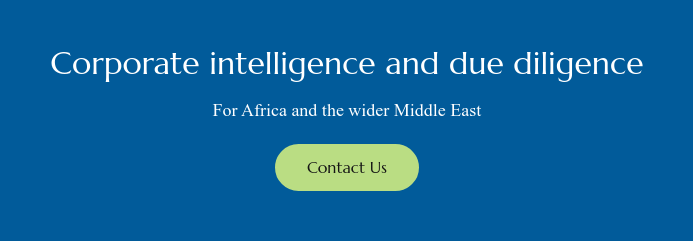In the spotlight: Mubadala and its interests in North Africa
Read moreThe Middle East & Africa to take centre stage in 2023
As the 2022 calendar heads for the recycling bin, it is worth reflecting on the three major global events that were held in the MEA region in the last quarter of the year: in October, the Future Investment Initiative (FII, or referred to by some as ‘Davos in the Desert’) was re-convened in Riyadh, attracting senior bankers, business leaders and politicians from around the world; a fortnight later and across the Red Sea, heads of state rubbed shoulders with environmental campaigners in Sharm el-Sheikh at COP27; and in a break from the norm Qatar hosted a winter FIFA World Cup which, despite the controversy preceding the event, was notable for its friendly atmosphere amongst fans and the particularly high standard of football on show. These opportunities for Middle Eastern and African countries to take centre stage set the tone for 2023, when a confluence of geopolitics and economics will continue to draw interest from many angles.
Trouble elsewhere
Unsettling global events from other regions are precipitating interest in the Middle East. On the one hand, we have China’s rapidly decelerating economy, ongoing Covid woes, and a more hawkish tone being adopted by western governments; on the other hand, Russia is now off limits to most investors due to its war in Ukraine, which itself is leading to the displacement of Russian and Ukrainian citizens to Turkey and the UAE, increasing demand for real estate and basic services. Likewise, businesses are closing offices in Russia and eastern Europe and relocating to other regional hubs such as Dubai, while re-engineering their supply chains to avoid sourcing materials from Russia and China.
From a macroeconomic point of view, while European nations suffer from a widespread recession the MEA petrostates are enjoying their first oil boom for more than a decade. The expectation that Saudi Arabia’s economy will grow by 7.5% in 2023 – faster than any other country – is attracting record crowds to events such as the FII in Riyadh and Abu Dhabi Finance Week. These events showcase inbound investment and allow capital raisers to pitch to sovereign wealth funds such as Saudi’s Public Investment Fund, Abu Dhabi’s Mubadala, and the Qatar Investment Authority, which are now buoyant because of the recent high oil price. This recently acquired wealth will likely be both recycled into domestic economies and used to make strategic investments abroad. High profile projects including new transnational railway lines and vast master developments such as NEOM on the west coast of Saudi Arabia will be balanced by outbound investments in trophy assets and well-known global companies (PIF acquired a 5% stake in Nintendo in mid-2022) – all of which will ensure a constant flow of investor traffic to the region throughout this year.
Travel is back
Tourism is an increasingly important part of the regional economy and industry forecasters are predicting a return to pre-Covid visitor numbers. With South Africa, Morocco, Egypt and the UAE, amongst others, all established on the tourist map, relative newcomers such as Algeria and (again) Saudi Arabia have been marketing themselves as tourist destinations. And Qatar is hoping to extract more legacy from its World Cup infrastructure this year by hosting the 2023 AFC Asian Cup (as defending champions) after China withdrew as hosts, although dates have not yet been announced.
Politics and international relations
No fewer than 17 African states will hold national elections in 2023, with a further 13 following in 2024. Based on experience, we expect mass demonstrations and social unrest for weeks before and after polls. In addition to electoral tectonic plates moving, we are also likely to see subtle changes in how various countries position themselves internationally. Countries in the MEA region have long tried to balance staying on good terms with the US and Europe, whilst engaging in trade and accepting major infrastructure investments from China and other Asian nations. As tensions between the US and China increase, and as US influence in the region lessens, MEA countries may pivot towards Asia and be more willing to pursue an independent agenda, be it defence policy, international alignment (for example on issues such as Ukraine), or development priorities.
Any forecast of the MEA region’s prospects for 2023 would be incomplete without reference to its likely disappointments. Hopes of resurrecting the JCPOA with Iran now look to be dead in the water, which presages more tensions over its nuclear programme with both the West and its near neighbours Israel and Saudi Arabia. Meanwhile, the conflicts in Yemen and Syria are unlikely to be resolved, there is no end in sight for the economic woes of Lebanon and Turkey, and corruption scandals continue to dog the government of Cyril Ramaphosa in South Africa.
Outlook
Despite the challenges, we believe the MEA region will provide many of the economic highlights and investment opportunities of 2023. As a company with a vision to support decision-making through the provision of clear business information, Diligencia hopes to play a small part in this growth, and we wish all of our customers every success for the year ahead. And as 2023’s calendar is laid out before us, we look forward (amongst other things) to COP28 which will be held in…Dubai!
Diligencia helps customers from around the world to find essential information on organisations registered in Africa and the wider Middle East, drawing from primary sources that are otherwise hard to find. Using our curated data, we enable our clients to effectively manage their compliance obligations, market strategies and counterparty risks in the MEA region.

